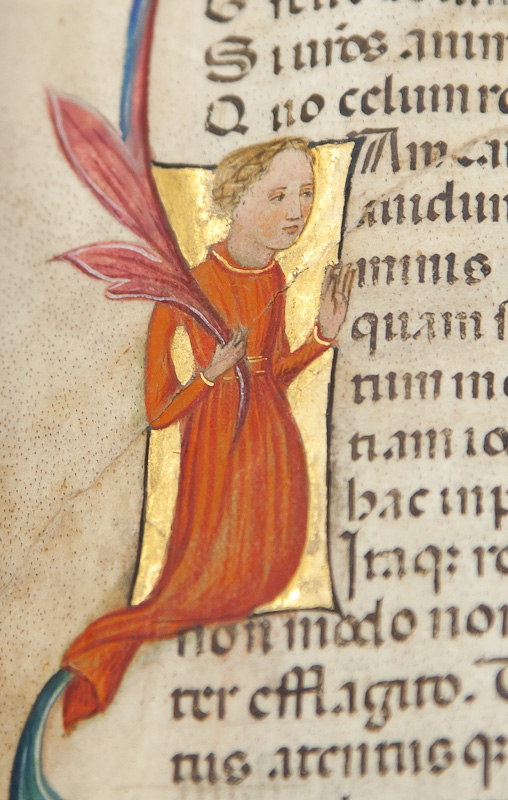Publilius Syrus, 296
“Acquitting the guilty convicts the judge.”
Iudex damnatur cum nocens absolvitur.
Dinarchus, Against Aristogiton 107; 105
“Will you really acquit this damned man who never did you anything good from his first public act but instead has done every evil he could?”
τὸν δὲ κατάρατον τοῦτον, ὃς ἀγαθὸν μὲν ὑμᾶς οὐδεπώποτε πεποίηκεν ἐξ οὗ πρὸς τὴν πόλιν προσελήλυθε, κακὸν δ᾿ ὅ τι δυνατός ἐστιν, ἀφήσετε;
“You have to believe, by god, that he will be no better in the future after getting this judgment from you and will never stop taking bribes against you if you acquit him.”
οὐ γὰρ δὴ μὰ τὸν Ἡρακλέα βελτίω γενήσεσθαι αὐτὸν προσδοκᾶτε συγγνώμης νυνὶ τυγχάνοντα παρ᾿ ὑμῶν, οὐδὲ τὸ λοιπὸν ἀφέξεσθαι τοῦ λαμβάνειν χρήματα καθ᾿ ὑμῶν, ἐὰν νῦν ἀφῆτε αὐτόν.
Seneca, Moral Epistles 97.3
“The crime was less offensive than the acquittal.”
Minus crimine quam absolutione peccatum est
Demosthenes, On the False Legation
“For your reputation, for your religion, for your safety, for every advantage you have, do not acquit this man—no, exact vengeance upon him to make him an example to everyone, to our citizens and to the rest of the world.”
οὔτε γὰρ πρὸς δόξαν οὔτε πρὸς εὐσέβειαν οὔτε πρὸς ἀσφάλειαν οὔτε πρὸς ἄλλ᾿ οὐδὲν ὑμῖν συμφέρει τοῦτον ἀφεῖναι, ἀλλὰ τιμωρησαμένους παράδειγμα ποιῆσαι πᾶσι, καὶ τοῖς πολίταις καὶ τοῖς ἄλλοις Ἕλλησιν.
Quintilian, 7.4
“This is a domestic problem, in which sometimes it is enough to claim that there was only one crime, or it was just a mistake, or less severe than is claim for an acquittal”
Est enim domestica disceptatio, in qua et semel peccasse et per errorem et levius quam obiciatur absolutioni nonnumquam sufficit.
Dinarchus, Against Demosthenes 29
“Do not acquit this man, citizens, do not acquit and leave unpunished someone who has signed off on the misfortunes of this state and the world, a man who has been caught in corruption against the state….”
μὴ ἀφῆτε, ἄνδρες Ἀθηναῖοι, μὴ ἀφῆτε τὸν ἐπὶ τοῖς τῆς πόλεως καὶ τῶν ἄλλων Ἑλλήνων ἀτυχήμασιν ἐπιγεγραμμένον ἀτιμώρητον, εἰλημμένον ἐπ᾿ αὐτοφώρῳ δῶρα ἔχοντα κατὰ τῆς πόλεως
Lysias, Against Nicomachus 30
“Today you need to change your minds about what you have done. You need to refuse to keep being abused by these people. Don’t reproach those who have done wrong in private! Do not acquit the guilty when it is in your power to punish them.”
νῦν τοίνυν ὑμῖν μεταμελησάτω τῶν πεπραγμένων, καὶ μὴ ὑπὸ τούτων ἀεὶ κακῶς πάσχοντες ἀνέχεσθε, μηδὲ ἰδίᾳ μὲν ὀνειδίζετε τοῖς ἀδικοῦσιν, ἐπειδὰν δ᾿ ἐξῇ δίκην παρ᾿ αὐτῶν λαμβάνειν, ἀποψηφίζεσθε.
Andocides, Against Alcibiades 25
“I will show from the very facts he uses that he is more fit for death than acquittal. I will explain it to you.”
ἐξ αὐτῶν δὲ τούτων ἐπιδείξω αὐτὸν ἐπιτηδειότερον τεθνάναι μᾶλλον ἢ σῴζεσθαι. διηγήσομαι δ᾿ ὑμῖν.
Lysias, Against the Corn-Dealers 17
“You need to understand that it is impossible for you to acquit. If you ignore the charge when they admit that they are conspiring against the traders, then you will seem to make a judgment against the importers. If they were making up any other kind of defense, no one would criticize a vote to acquit since you can choose to believe whatever side you want. But, as things are now, you can’t imagine you are doing something amazing if you acquit unpunished those who admit that they broke the law!”
Ἐνθυμεῖσθαι δὲ χρὴ ὅτι ἀδύνατον ὑμῖν ἐστιν ἀποψηφίσασθαι. εἰ γὰρ ἀπογνώσεσθε ὁμολογούντων αὐτῶν ἐπὶ τοὺς ἐμπόρους συνίστασθαι, δόξεθ᾿ ὑμεῖς ἐπιβουλεύειν τοῖς εἰσπλέουσιν. εἰ μὲν γὰρ ἄλλην τινὰ ἀπολογίαν ἐποιοῦντο, οὐδεὶς ἂν εἶχε τοῖς ἀποψηφισαμένοις ἐπιτιμᾶν· ἐφ᾿ ὑμῖν γὰρ ὁποτέροις βούλεσθε πιστεύειν· νῦν δὲ πῶς οὐ δεινὰ ἂν δόξαιτε ποιεῖν, εἰ τοὺς ὁμολογοῦντας παρανομεῖν ἀζημίους ἀφήσετε;







